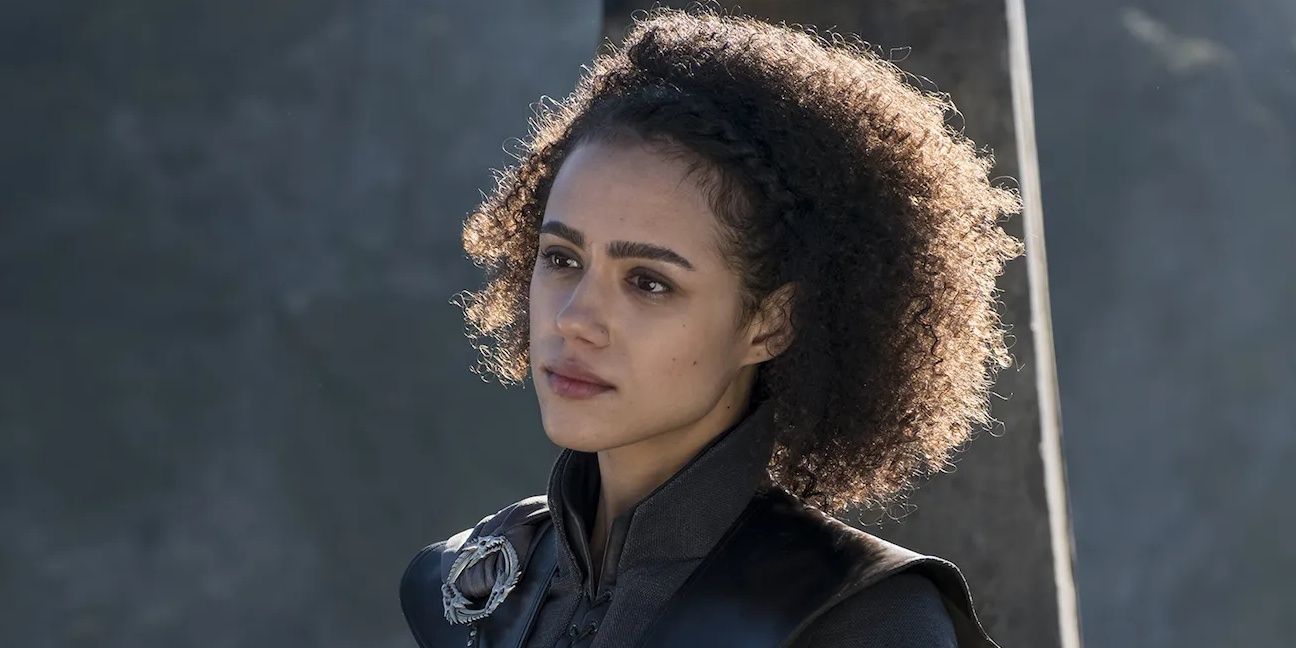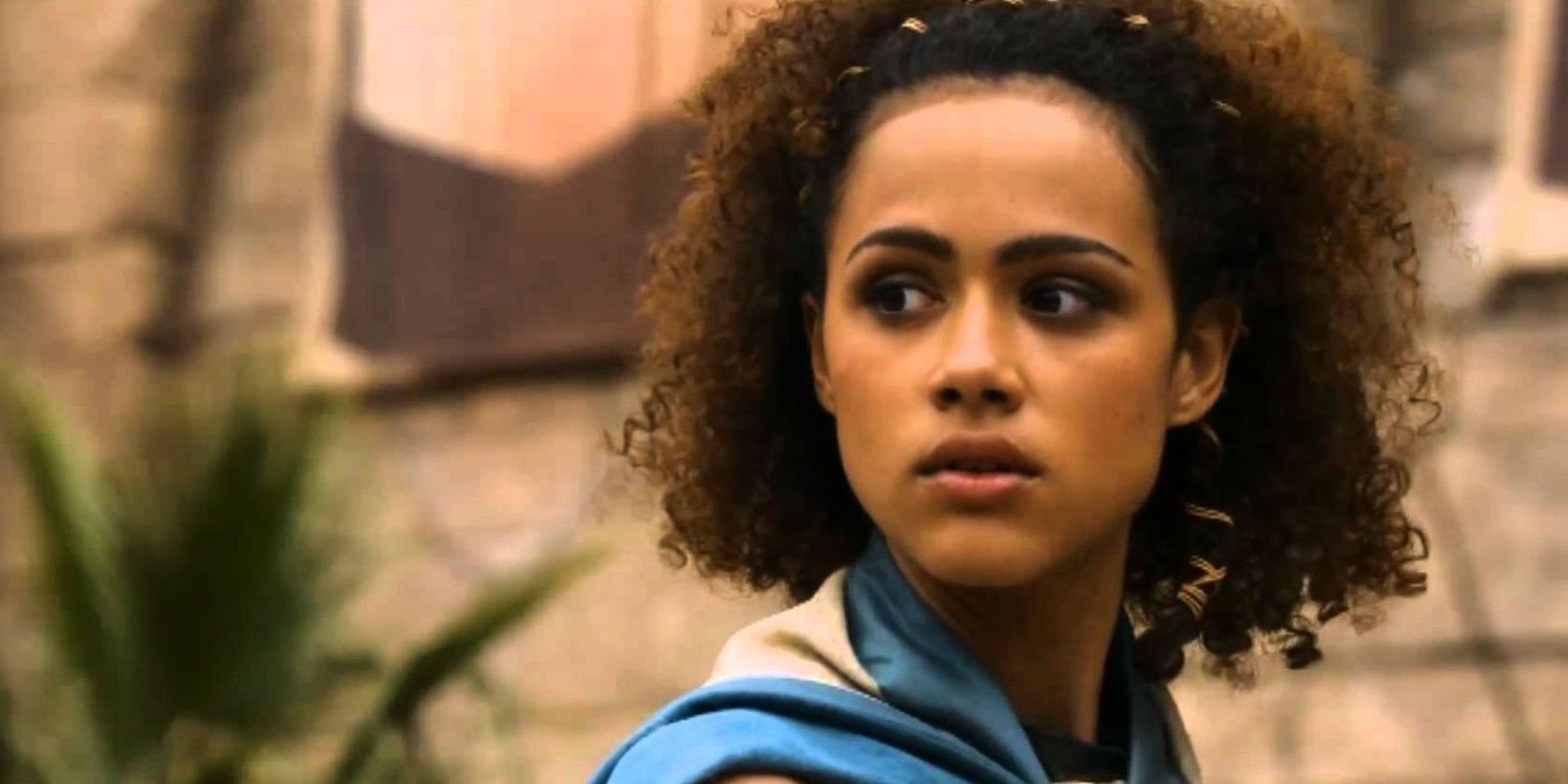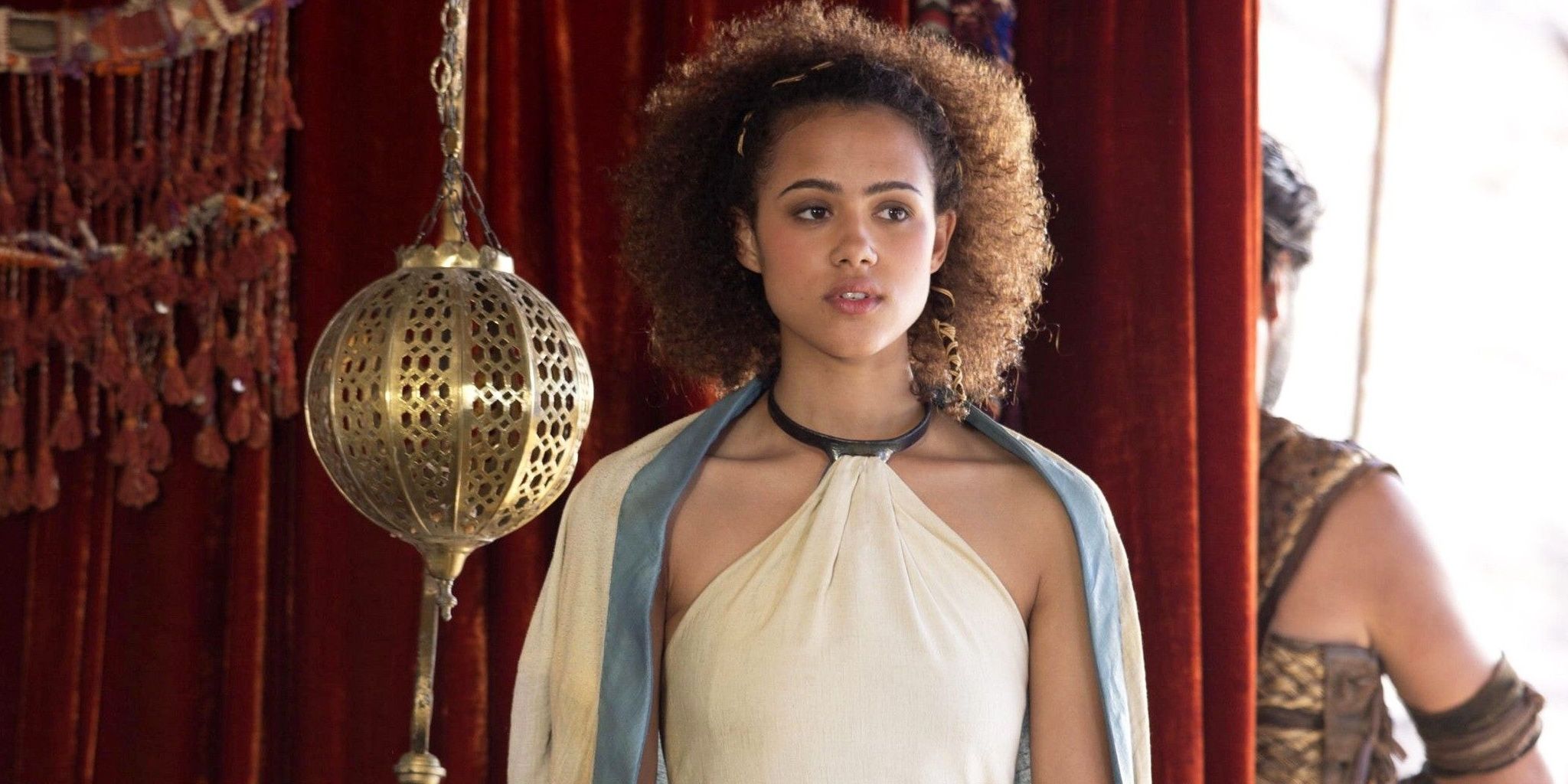For the entirety of its run, from 2011 to 2019, HBO’s Game of Thrones prided itself on being a series in which anyone could die. From the moment that Ned Stark (Sean Bean) kicked the bucket in Season 1, fans were convinced that all characters in the show had a sword over their heads that could come down at any second. That was, of course, not exactly true. From Arya (Maisie Williams) to Tyrion (Peter Dinklage), Game of Thrones had its favorites that were constantly protected by plot armor. Still, it was pretty hard to determine who would be the next one to die in the show, and how that death would happen, especially after showrunners David Benioff and D.B. Weiss started going beyond the source material provided by George R.R. Martin and his A Song of Ice and Fire book series. And, the further the showrunners got from the novels, the more unsatisfying these unpredictable deaths got as well. Many viewers never got over the sad and uncalled-for departures of Shireen Baratheon (Kerry Ingram) and fan-favorite Lyanna Mormont (Bella Ramsey), and, quite frankly, nor should they. With little to no effect on the plot, these deaths were done mostly for shock value alone, just to prove to the audience that Game of Thrones was not afraid of killing children. But when it comes to deciding which Game of Thrones death deserves the most vitriol, it’s not to the children to whom we should look, nor to the characters whose demise made no actual impact on the grand scheme of things. When it comes to Game of Thrones’ most unforgivable deaths, the number one on the list is the killing of a character that ultimately led the plot to its tragic — in more ways than one — conclusion.
We are, of course, talking about the murder of Daenerys’ (Emilia Clarke) close confidant, Missandei of the Isle of Naath (Nathalie Emmanuel). Brutally killed by The Mountain (Hafþór Júlíus Björnsson) in one of the show’s final episodes, Missandei left the world of Westeros with damning final words that spelled destruction for the city of King’s Landing and complete disaster for the finale that was about to come. And what’s worse is that said finale didn’t even need her death to begin with. To add insult to injury, Missandei’s execution also meant the death of one of Game of Thrones’ only two regular characters of color — a character who spent most of her time in the series serving as little more than an accessory to a white savior type and who, even in her death, was used as an excuse to further someone else’s pain.
Missandei’s Death in ‘Game of Thrones’ Sees the Character Back in Chains
Missandei’s death in Game of Thrones was a brutal scene for more than just the bloodshed. Captured off-screen by Euron Greyjoy (Pilou Asbæk) during the Battle of King’s Landing, Missandei was taken to Cersei (Lena Headey), who used her to blackmail Daenerys into withdrawing her forces from the capital. Atop the walls of King’s Landing, Missandei, who was once an enslaved woman freed by Daenerys in Astapor, was put back in chains and presented as a thing to be traded off in exchange for power. This was the first crime committed by Benioff and Weiss when it comes to the death of Missandei. To put a Black character who had undergone a journey of liberation, albeit a journey that began somewhat questionably through the actions of a white savior, back in the position of being owned and chained was not only a setback, but also painfully humiliating. This humiliation is furthered by the revelation, in the aftermath of Missandei’s death, that the only thing she kept in her belongings was the collar she used as a slave, as if that was a cherished memento that one would wish to preserve.
But the chains that are put around Missandei in her death scene aren’t just literal. They are also metaphorical. As Daenerys refuses to be swayed by threats, Cersei has The Mountain chop off Missandei’s head in front of her. Having just lost Ser Jorah (Iain Glen) in the Battle of Winterfell and her dragon Rhaegal through Euron’s scorpion bolts, Daenerys completely loses it upon seeing the head of her beloved friend and servant fall to her feet. This is where the focus of Missandei’s death lies, not on Missandei herself, but on Daenerys. The character is used as an object in service of furthering her master’s pain so that she can finally reach the point of ignoring Tyrion’s advice and instead lay complete waste to King’s Landing.
Missandei’s Last Words Served as a Springboard for ‘Game of Thrones’ Awful Ending
The ultimate destruction of King’s Landing is pushed forward not only by Missandei’s death itself, but also by her final words — or, shall we say, word. Before getting her head cut off by The Mountain, she looks Daenerys dead in the eyes and angrily shouts “Dracarys.” The Old Valyrian word is the command Daenerys uses to get her dragons to set fire on everything in their sight. When Missandei says it to Daenerys, she’s basically giving her leave or even encouraging her to burn King’s Landing down to the ground.
Missandei’s death, thus, was also the excuse the showrunners found to make Daenerys attack King’s Landing the way she did, which ultimately led to the show’s dreadful finale and everything that came with it. From Cersei and Jaime’s (Nikolaj Coster-Waldau) terrible death by flames to Daenerys’ unsatisfying transformation into a despot to her even more disheartening execution at the hands of Jon Snow (Kit Harington), everything can be linked to that one word uttered by Missandei. After all, she was the one who allowed Daenerys to live up to the Mad Queen potential that Benioff and Weiss bestowed her with.
But what’s worse is that Daenerys didn’t need Missandei, dead or alive, to live up to this potential. D&D, as the showrunners became known by the fandom due to their given names, had already signaled that Daenerys was going to follow in the footsteps of her father, King Aerys II, and become a cruel ruler who sets fire to her own people. Daenerys had already been laying waste to cities that defied her authority long before King’s Landing, lest we forget what she did to Vaes Dothrak. Her paranoia about the people who surrounded her had already been growing ever since she learned of Jon’s Targaryen heritage and witnessed how beloved he was in the North. Her transformation into the Mad Queen was still rushed, to be sure, but it was already well under way. Missandei’s death wasn’t needed for it to be completed. It acted as a sort of final push, but Daenerys could’ve very well jumped off that board all by herself.
Missandei, thus, was hardly a footnote in Daenerys Targaryen’s story. But what’s even worse is that Missandei was barely a footnote in the episode that culminates in her death. As its title suggests, Season 8’s “The Last of Starks” is not at all about Missandei. Instead, the episode focuses its first half on the aftermath of the Battle of Winterfell, mourning those who fell fighting the Night King (Vladimir Furdik) and celebrating those who survived, and its second half on Varys (Conleth Hill) and Tyrion whispering around corners, conspiring to put Jon in the Iron Throne instead of Daenerys. Missandei appears for brief seconds in the collective funeral presided by Jon Snow and in Daenerys’ ship, holding hands with Grey Worm (Jacob Anderson). Her only words before “Dracarys” are uttered in a short war room scene in which she assures everyone present that Daenerys will emerge victorious. Even her capture by Euron Greyjoy and his men happens off-screen.
This is a sad conclusion for a story that began with so much promise but eventually led to nowhere. Missandei was never allowed to be a character in her own right. We never knew her feelings or her thoughts apart from what pertained to Daenerys and her ability to rule Essos and the Seven Kingdoms. Whenever she was present on-screen, it was by Daenerys’ side. And though the later seasons of Game of Thrones began to give her a proper storyline through her romantic relationship with Grey Worm, this all died the moment that she was captured.
In the end, Missandei was barely a footnote even in her own story. This treatment was extremely unfair, particularly towards one of the show’s few characters of color, and one of the only two who actually managed to live for more than just a handful of episodes (the other being, of course, Grey Worm). Sadly, however, it is to be expected of a series and a genre with a track record of treating characters of color extremely poorly, at least when they are featured at all. Ultimately, Game of Thrones did Missandei a huge disservice, and she deserved so much better.
The Big Picture
- Missandei’s death in Game of Thrones was unnecessary and did not contribute to the plot, serving only as a shock value moment.
- Killing off Missandei, a character of color who had a journey of liberation, and putting her back in chains was a humiliating setback.
- Missandei’s death was used as an excuse to push Daenerys towards her transformation into the Mad Queen, but her character development had already been established leading up to it.
Stay connected with us on social media platform for instant update click here to join our Twitter, & Facebook
We are now on Telegram. Click here to join our channel (@TechiUpdate) and stay updated with the latest Technology headlines.
For all the latest TV News Click Here



